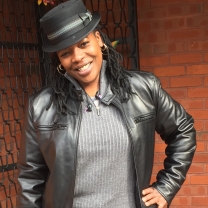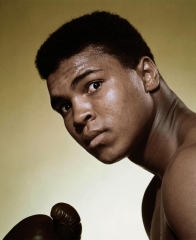 / More Speech To Remedy Harmful Speech
Subscribe
/ More Speech To Remedy Harmful Speech
Subscribe

A commitment to freedom of expression means that we value speech in a way that warrants a reluctance to regulate it. This commitment is compatible, however, with the recognition that some speech is harmful, and not merely offensive. To be harmed is to be made objectively worse off; offense is a subjective feeling. Moreover, some speech is harmful enough to warrant its regulation even when a principle of free speech is operative. Threats, defamation, and criminal solicitation are examples of regulated speech. Although I am not here concerned with regulation, I would like to explore and criticize one reason often given against it. Many maintain that the best remedy for harmful speech is counter-speech that reduces or even prevents its harms. The thought seems to be that if speech can bring about harm, then more or different speech can block or undo that harm. This has come to be called the “more speech response.” I will here identify some reasons to be concerned about it—at least as a blanket strategy.
To focus discussion, let’s concentrate on face-to-face instances of racist speech. Suppose that a white man yells racist epithets at Christine, a woman of color, as she walks to the subway on her way to work. Speech like this can be harmful. It can cause stress, anxiety, and depression in its targets. It can prevent a person from fully participating in the workplace, the community, or even the democracy. It might even undermine the social standing of entire groups of people.
Despite such harms, hate speech like this is not currently regulated in the United States, unless it falls into an already regulated category of speech. Such harms, we might think, are just “the price we pay” for freedom of expression. The “more speech response” would have it that the proper remedy to such hate speech is counter-speech. Speaking back to the hate speech is the right response; regulation is not. Again, I am not here concerned with regulation but I am concerned with the false assumptions and unfair burdens implicit with this “more speech response.”
For starters, the “more speech response” disproportionately places the burden of a remedy on those harmed by the harmful speech and this is unfair. Why should Christine be saddled with the responsibility for the solution? Why should she have to confront the speaker? Doing so could be stressful, exhausting, or even dangerous.
Second, if targets of hate speech have their speech disabled, then this undermines the efficacy of (and not just the fairness of) the “more speech response.” Speech can be disabled in a wide variety of ways. One’s attempted communication might not be interpreted properly and there are many distinct ways that this can happen. Furthermore, one’s assertion might not be given appropriate credibility; the shared conceptual resources and social meanings might not facilitate the successful communication of the thoughts and experiences of marginalized persons; and one might decide against speaking (because, for instance, harm would result from the way that the audience takes up what you have to say). If members of racial minority groups are silenced in any of these ways, then this undermines the effectiveness of their counter-speech and thus the potency of the “more speech response.”
Third, empirical work shows that targets of racist speech in public places rarely actually speak back. There are many reasons for this. Perhaps Christine is (rightly) concerned for her safety; maybe she refuses to take on the responsibility for the speaker’s ignorance, or she views such counter speech as a pointless waste of energy. That, as a matter of fact, targets of hostile public speech tend to refrain from responding certainly tells against counter speech as a sensible solution.
Fourth, the “more speech response” appears to make other false empirical assumptions. In particular, it appears to assume a level playing field for all speakers but, as we all know, who is able to do what with her words is a function of social power. Some speech acts require the exercise of authority; who has an audience, is recognized as credible, has perceived expertise, or the ability to disseminate her views are all also strongly affected by one’s social position. By assuming a level playing field then, the “more speech response” overlooks the crucial role of social power in effective language use. What’s the point of producing counter speech if one’s social identity will prevent it from being effective?
Fifth and relatedly, the “more speech response” also appears to function with an impoverished view of how language actually functions. It is not as if the only point of language is to communicate claims and reasons in support of those claims. If that were the only function of language, then counter speech might have the capacity to undo what counts as true or supported. Speech does a lot more than this: we use it to make promises, apologize, and enact law. Speech can invite, embarrass, and demean; it can confer and take away powers and privileges. Spewing racist epithets is not an argument in support of some position of social concern; it is not an invitation to discuss the merits of some reasoned position. Rather, it is an act of derogation. How can “more speech” undo or counteract that?
Sixth and finally, some of the things that speech does cannot be undone easily. Using racist epithets, for example, makes false and pernicious stereotypes salient and you can’t use speech to make something un-salient. Moreover, once salient, these stereotypes influence us in barely conscious ways and not for the better; they also trigger harms like stereotype threat and unconscious bias.
I am not saying that regulation is the answer. I am saying that we should not overlooks the harms of racist speech on the misguided belief that ”more speech” is an easy, fair, effective, and simple solution.
Photo Credit: Alex_Bond, "Megaphone," via Shutterstock, 24 January 2018.





